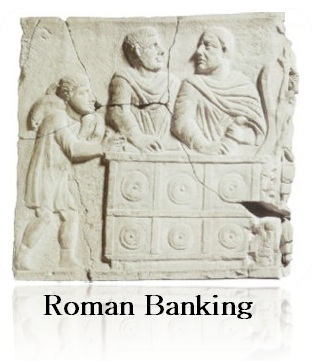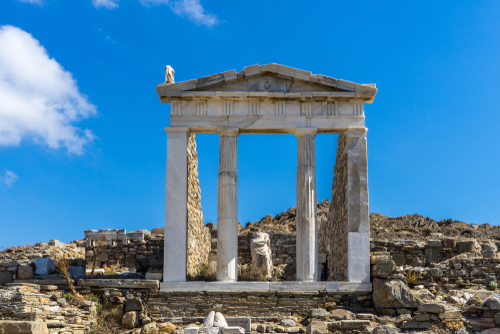Central Banks v Clearing
Delos, First Central Bank
QUESTION: Dear Martin
Wonder if you have any insights as to the history of the bank clearing process.
Was the clearing process created mainly so banks could play games and earn interest with peoples’ money
with the reasoning that it was to prevent money laundering?
With technological advances today, one can accept an hour or two for automatic name and account number checks to happen
but 3-7 days seems ridiculous.
Any insights to the creation of the clearing process would be enlightening.
Thank you again
KW
 ANSWER: The function of bank clearing began with giro-banking, which originated in the Temple of Delos in Greece. The term refers to the circulation of money. It originated where you could write a check to one person and transfer the payment to their account at the same bank. Effectively, in ancient Greece, you would have an account at the Temple in Delos and instruct a transfer to their account in the Temple. The Romans adopted this concept and thus Roman banking was born.
ANSWER: The function of bank clearing began with giro-banking, which originated in the Temple of Delos in Greece. The term refers to the circulation of money. It originated where you could write a check to one person and transfer the payment to their account at the same bank. Effectively, in ancient Greece, you would have an account at the Temple in Delos and instruct a transfer to their account in the Temple. The Romans adopted this concept and thus Roman banking was born.
A central bank emerged after the Dark Ages in the early modern history as a government or state-owned banks. The Dutch were pioneers and financial innovators who not only created this state banking concept, but they also invented insurance. The Wisselbank was the first such bank in Amsterdam which was founded in the Dutch Republic during 1609. The Wisselbank became the model of the central banking system and it spread throughout Europe; first in 1668 in Sweden known as the Sveriges Riksbank and then the Bank of England in 1694.
When smaller private banks began to pop up, the state-owned banks emerged as clearing banks where transfers between the accounts at the central bank took place the same as they did between accounts in ancient Delos.
The Wisselbank actually collapsed in 1790 after it was revealed that the deposits have been used secretly to fund the Dutch East India Company. The manipulation was that they represented themselves as just holding money for safe-keeping. They did not lend money out. So when the bank failed and they had been using the money to fund the Dutch East India Company, the city had to bail out the bank and stand behind the losses.
To eliminate cash, the ECB has a secret project to provide instantaneous transfers for each transaction. Therefore, the central bank was simply a state-owned bank whereas a clearing bank was one where all banks must clear transactions.

